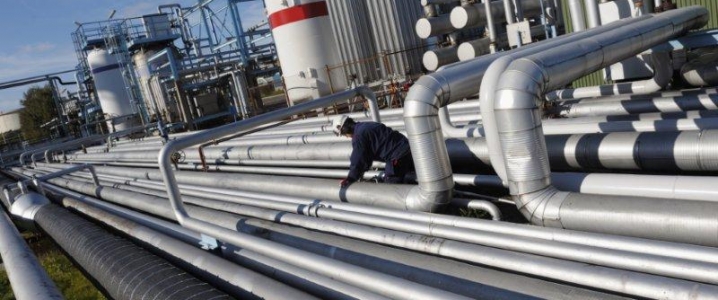Shell’s presence in Nigeria has been controversial, what with lawsuits for the pollution of the Niger Delta, chronic pipeline vandalism and, in recent years, militant attacks on oil-producing infrastructure. But instead of seeking ways to curb its presence in the West African nation, Shell has big plans for it, and these big plans have nothing to do with oil.
Last month, Shell signed an agreement with the Nigerian National Petroleum Company and two other companies for the development of natural gas projects worth some US$3.7 billion, as part of Nigeria’s efforts to deal with a looming domestic market shortage of the fuel. But it looks like this deal is just the start of a much larger-scale strategy.
In a recent interview with Bloomberg, Shell Gas Nigeria’s managing director Ed Ubong said the company eyes a complete transformation of the Nigerian energy system by betting on the development of its vast gas reserves, estimated by BP to be the largest in Africa at 5.2 trillion cubic meters.
Gas production in Nigeria as of 2017 was about 47.2 billion cubic meters, up from 35 billion cubic meters ten years ago. Consumption as of 2016 was 20 billion cubic meters, which given Nigeria’s population size is a very modest amount. The reason for this moderate gas demand is simple: lack of distribution infrastructure.
Meanwhile, investors are shunning Nigeria as a business destination because of the lack of a centralized, well-developed grid. And the lack of a centralized well-developed grid is related to heavy use of diesel generators and the unsuccessful privatization of the country’s power utility sector. Shell wants to change all this.
For starters, the company will target so-called industrial clusters: areas with high concentration of manufacturing activity where foreign investors could be persuaded to set up shop. If this happens, the energy needs of these clusters will rise sufficiently to make building a natural gas pipeline profitable. If there is enough activity, even building a gas-fired power plant could become profitable, according to Shell’s plans.
The big question, of course, is whether foreign investors are interested in setting up shop in Nigeria, and, according to Ubong, they are. “They’re calling me,” he told Bloomberg. “That’s how I know the demand is there.” Related: $90 Oil Is A Very Real Possibility
A gas distribution network will help solve more than one problem in Nigeria. By making up the foundation of what could become a centralized national grid, such a network would stimulate foreign investment and consequently create employment in the West African nation, which was recently ranked the world’s poorest country in the world by the Brookings Institution. At least, that’s the plan. Also, the move from diesel generators to gas-fired plants will reduce the country’s carbon footprint.
Shell certainly has the support of the Nigerian government in its gas initiative, challenging as it might prove to be: an earlier gas network projects incurred losses for several years until it turned into the back and now serves 90 industrial customers. And the government is doing its bit in encouraging the local gas industry. Recently, it launched a Nigeria Gas Flare Commercialization Program that aims to encourage investment in natural gas by tendering gas-flaring sites. LNG is also a growing business segment in the world’s fourth-largest exporter of the fuel, with the head of Nigeria Liquefied Natural Gas Ltd. eyeing the third-largest exporter spot after the addition of a new liquefaction train by the end of the year.
Nigeria’s Society of Petroleum Engineers recently noted in a statement that the country’s oil industry is losing its relevance and that the future more or less belongs to gas. Shell would agree. Besides being cleaner than oil, natural gas is also harder to steal, as Ubong noted in his interview with Bloomberg and abundant in Nigeria. It could indeed make the basis for a more industrialized Nigeria if Shell’s strategy pans out.
By Irina Slav for Oilprice.com
More Top Reads From Oilprice.com:
- What’s Holding Renewable Energy Back? An Interview With Dr. Steve Griffiths
- Canada Frees Itself From Saudi Oil Imports
- Is This Europe’s Newest Oil & Gas Producer?


















